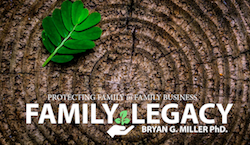Photo by Andre Hunter on Unsplash
Disappointing Your Parents
I’ve been contemplating lately the role of disappointment . . . as a parent.
For example, I am sure some of the life choices my wife and I have made undoubtably were disappointments to our parents. Things like turning down jobs (several times) at the college where my parents worked for 51 years. Perhaps choosing to homeschool our six children. Maybe others. Fortunately, we were blessed with parents that have what behavioral health professionals call “good boundaries” —also what we used to call “minding your own business”—and any disappointments they may have felt were not passed on to us. Thank you Mom and Dad on both sides!
Being the Disappointed
Now, the “shoe is on the other foot.” I am the aging parent with adult children. My wife and I, recognizing the “gift” of not being burdened with our parents disappointments,* if any, are careful to not dump our emotional churning on our children. (Note to my children: No, none of you have “been disappointments” to us as parents. We remain, very blessed to have kids making great choices and doing great things with their lives.)
I bring this up to share the following . . . the very fact that your children make choices that disappoint you* may be an indicator that you have actually done a good job as a parent! Your children are independent. They are learning and growing. They are taking on the challenges of life. They make make mistakes, but who doesn’t? Well done.
Remembering Your Boundaries . . . Internally and Externally: An Example
An little aside: I like stories. They are great tutors. Whether great literature, oral history, or a pithy example . . . I used to love “Drama in Real Life” in Reader’s Digest. It was the first thing I read. So, I remember, and tell, stories. They help me understand and grow . . . here’s one of mine to, hopefully, help make the point and make it memorable for you. Incidentally, I asked my kid permission to share this . . . . (yes, I am making a point!)
One of my terrific kids was on the brink of making a decision that could have been tabled a “disappointment.” It started one day when he came to me and said, “Dad, I talked to my boss and he’s okay with my plan to leave the company and go to Denmark for a year.” He was nineteen. Nineteen! He also was a homeschooled kid and had never lived anywhere except in our home. In fact, I don’t know that he had ever been away from us for more than a day or two.
My mind raced . . . “WHAT! YOU TALKED TO YOUR BOSS BEFORE YOU TALKED TO US?” (I don’t know about you, but the voice in my head at these times feels often quite LOUD and worth of all caps!) “DENMARK, THAT”S CRAZY!” (my internal voice isn’t very reasonable either) “I THINK THIS IS ‘CAUSE THAT GIRL DUMPED YOU!” Fortunately, I’ve had a lot of practice and not spewing—as a human volcano—but recognize these as an indicator to “go cautiously.” Outwardly, I focused on asking questions and listening. “Why Denmark?” and “What would you be doing?” finally, “Do you know anyone in Denmark?” I told him, that I loved Europe (true) and enjoyed traveling and studying there as a young man. (also true) Then I basically shut up . . . and waited. For four . . . long, long . . . days.
After those four—did I mention “long?”—days, I broached the subject again. “Can I talk to you about the Denmark thing?” I asked. I reiterated what I had said earlier, essentially, that I loved Europe, thought traveling abroad is a great thing to do as a young person, and that I knew the final choice was his. (Note external boundary here—he was legally an adult.) I also told him that going to Denmark seemed like a big step and that I would like him to consider a smaller step first. I told him that his mother and I travelled, twice, to Europe but that we had each other, and even then we cut our second trip short (after two months) and came home. I reminded him that he had never lived on his own and I suggested some possible smaller steps.
Then . . . what seemed like a miracle . . . my son replied, “Well, I already decided, after we discussed it, that this was a mistake . . . and I should do something smaller. I’ve decided to travel around the Midwest and work on local farms.” (A movement, apparently, called WWOOFing.) My mind, already rejoicing with relief, laughed, thinking “We really didn’t discuss it. I simply let you talk.” I also noted to my surprise, “Wow my kid’s a lot smarter than I give him credit for!” A fact I never would have discovered if I unleashed my fear of being disappointed by the decision.
Boundaries are easy to talk about hard in practice.
Parents as Owners in Family Business . . . Beware!
If you are a family business owner, you need to engage in this same process . . . of separating from and allowing independence. Let the kids learn. Let them make choices. Support but don’t criticize. Turn over control. (No, really!) Become an advisor. Demonstrate good boundaries and an appropriate “distance” within the business. Be ready to step in as a safety net . . . but only with the consent of your kids . . . and not too soon (safety nets do not, after all, leap up to catch a tightrope walker do they?) . . . lest you rob them of the opportunity to overcome a real or perceived threat to the business, learn, and become strong leaders.
* In talking about disappointments, I am referring simply to choices. Choices that you, as a parent, may not agree are the best choices. I am not talking about ignoring potentially catastrophic decisions —such as addiction, criminal behavior, still living in the basement, or other life-altering and threatening choices. Too often, this requires a totally different set of actions . . . and more stringent boundaries as well.
Free Resource: Family Legacy: Protecting family in family business.






